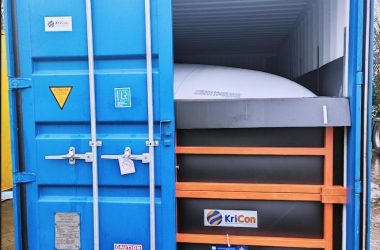Last Updated on: 22nd November 2023, 05:09 pm
Your business assets are incredibly important to the vitality of your company – and as your inventory changes, grows and evolves over time, it’s imperative to regularly appraise and track your assets.
Business assets cover everything from office furniture, equipment, any patents you might have through to vehicles, cash and buildings. These assets can generate financial gains, and when managed effectively, their value can elevate your venture to the next level.
Keeping track of the impact they have on your business is vital. So, if you don’t already, it’s time to implement a comprehensive process to manage and track your assets.
Where do I start?
First you need to identify all the assets you have. How? Split potential assets into three categories – physical and intangible assets as well as those you would consider intellectual property.
Physical assets would cover things such as stock and office equipment, buildings and vehicles. While the more intangible assets you have are things such as the specific skills or even your reputation. Intellectual property covers all ‘creations of the mind’ relating to your business – so logos, patents, copyrights and trademarks.
Organise all of your assets into these categories and attach value to each of them.
What’s next?
The next part of the process is to do risk assessments for all of your physical assets – this ensures you’re fully compliant with rules and regulations. Make sure you document everything and keep this log safe and available for whenever you might need it.
There’s little point in identifying, organising and valuing your assets if you’re not going to protect them – so that’s another (very important) part of this process. Consciously safeguard everything that’s intangible and invest in a comprehensive package of business insurance cover to protect your company against unforeseen circumstances.
Tracking and reporting when it comes to your assets is also hugely important, so keep on top of this on a regular basis. For instance, if you manage a fleet of vehicles and you need to track business mileage, there are solutions you can employ to save you time and money. It’s not only factors such as mileage, it’s the assets themselves you’ll need to track of – and regularly report on – to get an accurate picture of what you own, and therefore your venture’s value.
If you deal in stock and supply products to customers, monitoring inventory should be a huge priority. It isn’t cost-effective to have too much stock in storage and running out can cause delays for you and your customers. Striking the right balance requires careful management – and regular review.
Don’t forget about important trademark considerations.
Organisation is key when it comes to managing a small business and ensuring it flourishes. Whether you’re embarking on a solo venture or you manage a team – keeping on top of every asset under your company umbrella means you can make smart decisions. Whether that’s selling and replacing outdated equipment to ensure efficiency or using your assets to raise finance – implementing an asset appraisal system is an essential part of running your business.








